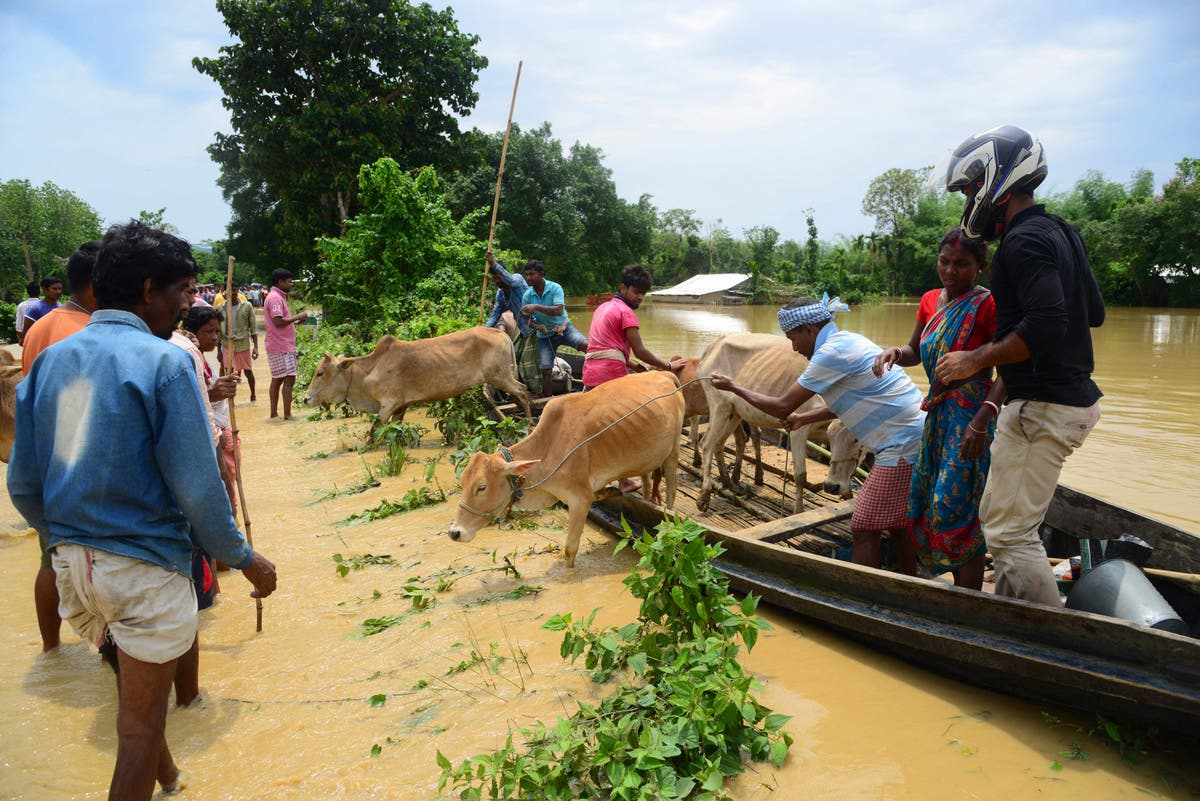
A Muslim teacher in India was arrested on Tuesday for allegedly bringing beef to school for lunch.
Dalima Nessa, the headmistress of Hurkachungi middle school in Assam’s Goalpara district, brought cooked beef along to a local school festival, when the education department was conducting a periodic review of the functioning of the government school and facilities.
“The incident occurred on 14 May, when the headmistress got beef from her house so that she could offer it to the guests, including the teachers and villagers,” Mrinal Deka, the additional superintendent of police in Goalpara district, told The Independent.
“The offer was not well-received with several people raising objections,” he said.
“Soon after, the incident went viral and on 17 May, a local resident filed a police case against her.”
The case was lodged on the basis of a complaint by the school management committee, reported the Indian Express newspaper.
Ms Nessa was charged under sections relating to promoting enmity between different groups and outraging religious feelings under the country’s criminal code.
She was produced before a court on Wednesday and has been in judicial custody since, said Mr Deka.
The office of the District Elementary Education, under the Assam government, has also issued a notice placing the 56-year-old school teacher under suspension with “immediate effect”.
A block-level inquiry has also been initiated in the matter, an education department official told the Indian Express.
Cows are considered sacred by members of India’s Hindu majority, and slaughtering cows or eating beef is illegal or restricted across much of the country.
Assam, which is ruled by prime minister Narendra Modi’s Hindu right-wing Bharatiya Janata Party, does not ban the consumption of beef.
But the Assam Cattle Preservation Act, passed in 2021, makes it illegal to slaughter cattle and sell beef in areas where Hindus, Jains and Sikhs are in a majority or within a 5km radius of temples or religious monasteries.
It also gives powers to the police to enter the house of an accused and inspect, search and seize properties acquired in the last six years with money earned from the “illegal cattle trade”.
“The provisions of Assam Cattle Preservation Act were not applied in this case as there is no sale of beef or slaughter of cattle involved,” Mr Deka told the Hindustan Times.







